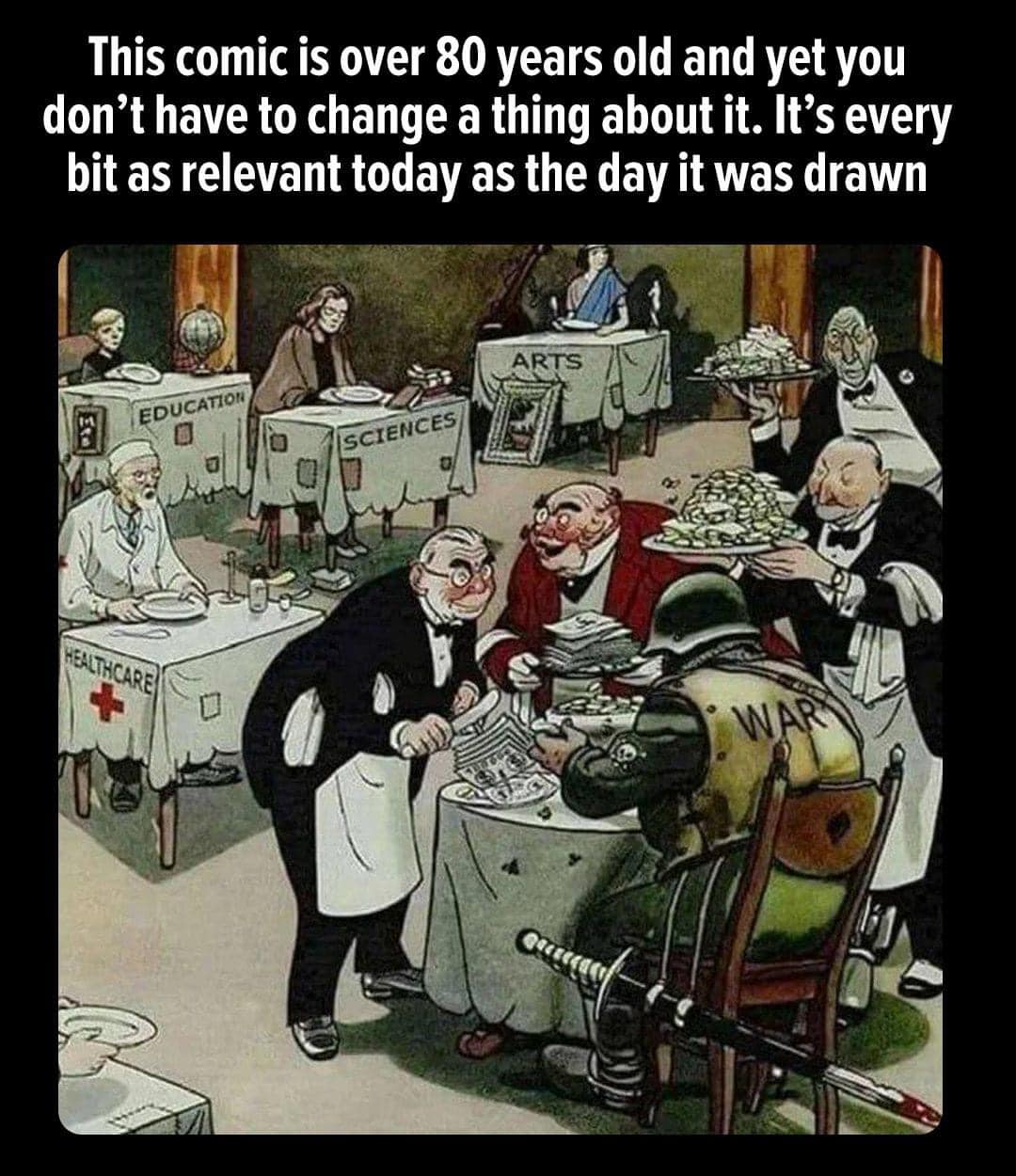this post was submitted on 17 Oct 2023
1416 points (97.9% liked)
Political Memes
5487 readers
3197 users here now
Welcome to politcal memes!
These are our rules:
Be civil
Jokes are okay, but don’t intentionally harass or disturb any member of our community. Sexism, racism and bigotry are not allowed. Good faith argumentation only. No posts discouraging people to vote or shaming people for voting.
No misinformation
Don’t post any intentional misinformation. When asked by mods, provide sources for any claims you make.
Posts should be memes
Random pictures do not qualify as memes. Relevance to politics is required.
No bots, spam or self-promotion
Follow instance rules, ask for your bot to be allowed on this community.
founded 1 year ago
MODERATORS
you are viewing a single comment's thread
view the rest of the comments
view the rest of the comments

If you don't plot defence spending against GDP but use absolute values it's higher now than ever: https://www.macrotrends.net/countries/USA/united-states/military-spending-defense-budget
Most of the fluctuations you can see in the GDP based graph are caused by GDP fluctuations, not by defence spending fluctuations.
And since the US GDP rose much more than inflation, the military also got more actual value from that defence budget. From 1960 to 2021, the cumulative inflation in the USA is 815% (+100%, since the inflation only measures increase not the value that was originally there). In the same time the GDP rose to 4564%, so 5 times faster. So if you have the same % of GDP defence spending in 1960 as you have now, the military has 5x the budget, adjusted to inflation.
China is in a similar boat, but much more extreme. China's defence spending vs GDP stayed pretty much on the same level since 1990. But in the same time their GDP rose from $361 billions to $17.7 trillions. Their GDP multiplied by a factor of 49 and so did their defence spending. Inflation over the same time was just 107% (again +100% to make our calculation correct). So adjusted for inflation, their military spending went up by a factor of 23.6.
TLDR: Your measurement measures the wrong thing, so you get the illusion that spending goes down while it actually increases quite a lot.
I never argued that. Though it's not hard to argue that government funds are precious and could be used elsewhere to better effect.
Of course, that is how satire works. If satire wouldn't use hyperbole, it would be called News (though some news also use a lot of hyperbole).
One important difference between defence spending and all the other categories (social services, health, education and even GDP itself) is that defence spending is not a per-capita thing while the others are.
A 2x increase of the population doesn't mean you need twice as many aircraft carriers.
But a 2x increase of the population means you have twice as many workers who are increasing the GDP accordingly. You will also need twice as many doctors, hospitals and medicine. You will need social services and education for twice as many people too.
Add to that the demographic shift which means you have much more old people who aproportionally more medical treatment and social services, which mean if you have the same spending you will have a far downgraded result.
And the US private-first health system is famously inefficient, with costs of medication and treatments easily being 10x as expensive as in similarly developed countries. This ratio, btw, has been increasing over the last 100 years too.
So what people see is sinking quality in all these sectors while the military is getting more and more money.